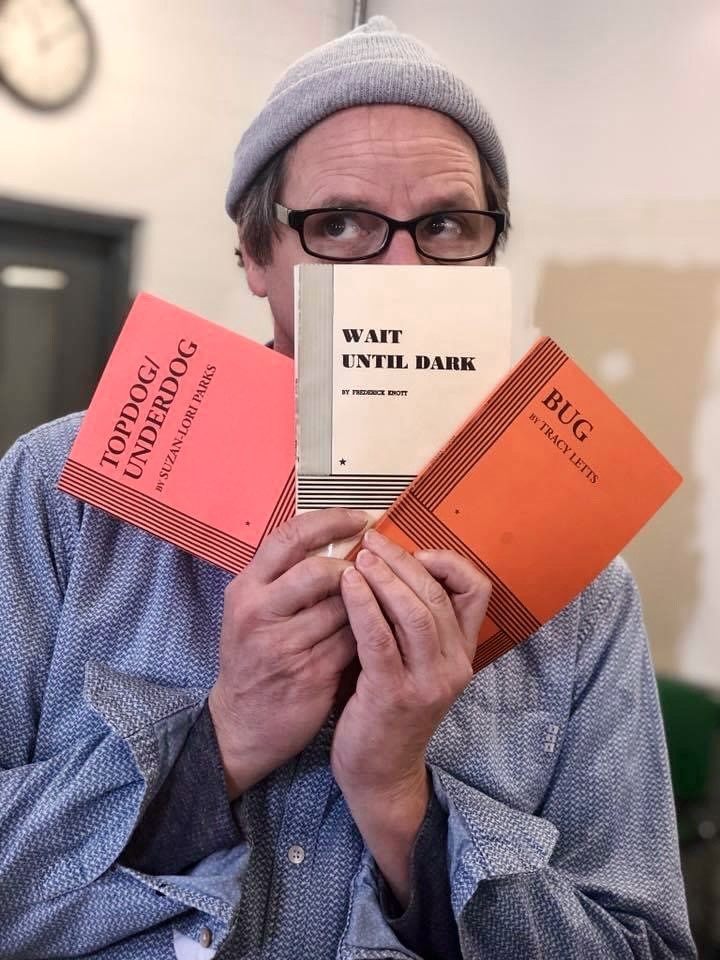Castleton retail cannabis revote fails

Retail cannabis will not be coming to Castleton in the near future after a town revote failed to pass by 15 votes, 275-290, on April 13. These turnout rates beg the question: Where were the students?
Over two months ago, Town Meeting Day ballots across the state of Vermont had the contentious issue of retail cannabis up for vote in which 33 of the 41 articles were ultimately approved. Castleton was one of the few towns that voted the article down, 306-351.
After local hemp farm owner Janet Currie summoned some 140 signatures from Castleton residents, the issue returned to ballot with high hopes of success. However, of the roughly 2,000 registered voters in Castleton — not including Castleton students who bring the total closer to 4,000 — few showed up.
Who voted?
Currie held a total of three “Let’s talk Cannabis” informational forums meant to provide cannabis education and explain to the public her plans for a retail site. As far as she was aware, Currie said no students attended these meetings.
“To my knowledge, not a lot of students came and voted [either time], which was surprising, but not surprising. Clearly, I know there’s a lot of individuals engaged in cannabis on campus. The question here is: How many of those are of age and are registered voters in Castleton?” Currie said.
She went on to say that any individual not registered to vote in Castleton has to make a decision that they want to reregister in the town — especially if passionate about the issues. More importantly, “they have to have the motivation to go and do that with a town clerk.”
Phil Lamy, sociology and anthropology professor and coordinator of the Cannabis Studies Certificate program at Castleton, also sees the act of voting as a possible reason why students didn’t participate, but acknowledged that students might have been altogether unaware of the vote.
“I know a couple students in town that I know that I told knew about the vote and voted, but I think most students probably didn’t even know about it or, certainly, didn’t vote at all,” Lamy said. “I think had more of them known about it and were aware of it — without telling them how to vote — more of them might have voted on it. As far as we’re concerned in the Cannabis Studies Certificate program, [the] course is very popular. Students are really interested in it.”
CU votes
In order to vote on Castleton Town Meeting Day or on any other local measures, individuals must have residence in the town and be registered voters in the town. Students living on the university campus or in an off-campus residence in Castleton are qualified to register in the town and can do so at the Town Hall anytime.
Students, however, have expressed a lack of knowledge around their ability to participate in local elections. And though there is certainly a percentage of the campus that (doesn’t vote or) won’t in a given election, reports have proven Castleton University has very active voters.
According to a report done by the Institute for Democracy and Higher Learning provided to Spartan staff by political science professor Rich Clark on Castleton University voting statistics, 67.2% of students voted in the 2020 general election — 1.2% higher than the national institutional average. Moreover, Castleton students voted at a rate of 0.4% higher than the general public.
Clark is credited with being a large force in the movements to get students voting during national and state elections and said those have typically been his primary focus.
“We are always trying to get students to vote, in both local, state, and national elections, but our efforts tend to concentrate on the latter two,” Clark said in an email prior to Town Meeting Day. “Given that the students, if they choose to vote in the town of Castleton, which is their right if they live on campus or rent in the town, could dominate local politics, the Castleton Select Board should pay more attention to their concerns.”
A campus-wide email was sent out by Clark prior to the original Town Meeting Day vote, but as Lamy said, professors must be careful of letting student know they can vote, but not persuading one way or another.
“I just didn’t know”
Several students, however, were shocked to hear that retail cannabis was on the most recent ballot — nevermind that it had already been shot down twice.
Brent, an on-campus Castleton student and registered voter in Vermont who has asked to remain anonymous, said he was aware he was able to attend the informational meeting on Town Meeting Day, but didn’t vote because he was unsure the level in which he could participate.
“[I] haven’t seen anything around campus advocating or even encouraging students to attend. When does the town of Castleton have votes? Where would I find that information?” Brent said. “I don’t think many of my peers have a good idea where to find that information out either. I know several of my friends would’ve been interested in participating.”
A student who asked to be referred to only as “Woo,” is a registered voter in New York, but said he likely would’ve registered in Castleton had he known about the vote.
“My life is pretty well oriented around Vermont,” Woo said. “I just didn’t know that [this vote] was going on, but now that I’m aware, I would have definitely voted ‘Yes.’”
Matt Stefanowicz, a 2020 graduate, Castleton resident and recipient of the Cannabis Studies Certificate, said though he voted in favor of the retail cannabis article both times it appeared on the ballot, he didn’t find out through the town or the university that the vote was happening — rather it was through his work in Fair Haven.
“I think [this measure] would have been good for the program because it would be a local, indirect, source for college kids to have a job either while they’re in school or right when they get out,” he said. “I think it would bring in a lot of money to the town too. And I think more people would come to Castleton from neighboring towns, or even neighboring states, because there’s a dispensary there.”
Town concerns
As for the voters in the town of Castleton not affiliated with the college, Currie said she believes the vote failed because of a lack of education and preconceived notions as to what cannabis really is.
“There was a lot of campaigning and getting people to come in and ask questions that they were concerned about. And essentially educating the public in understanding this is not something that should be afraid of,” she said.
Lamy said town residents might have been wary of letting the measure pass fearing it’s just another substance available to students.
“People have said to me, ‘Well, that’s so unusual. You think of all the towns around here, that Castleton would’ve passed the vote. A few people have suggested maybe it was because of the college,” Lamy said.
Town Manager Mike Jones said that, all in all, he really did not hear much response on the issue from the public aside from the proponents like Currie and Lamy. He did, however, say that in the past, residents have had issues with the potential of large numbers of students participating in local elections.
“There’s a body of people that can influence local elections, and they don’t have to live all the repercussions of it. That’s always what I hear from the public. The students here, they vote and then they move on their lives as they graduate or move on,” Jones said. “But [students] have every right to vote here, they have every right to register here.”
Until next time..
Looking forward, Currie and Lamy hope the measure will return to ballot in November. Currie said she’ll canvas the issue again around that time and garner signatures again to put it on ballot if necessary.
In the meantime, she will continue work on her new wholesale business, Vermont Cannabis Products, and hopefully demonstrate how successful a retail cannabis location in Castleton could be to the town.
“Voting is very important in our lives, and we shouldn’t just assume that, ‘Oh, somebody else is going to go and do it.’ Each person should have a voice,” Currie said.
Lamy expects the opportunities and internships for students in the Cannabis Studies program will remain plentiful, but hopes all voters recognize regulated retail cannabis as a safer alternative to illegal market cannabis — which has become increasingly popular among older generations.
He also hopes students will continue to use their voice, no matter their vote.
“Students, as full-time residents, make up almost half or more of the town’s residents. And if they were organized more and voted in greater numbers, they could really command a lot of the decisions.”








